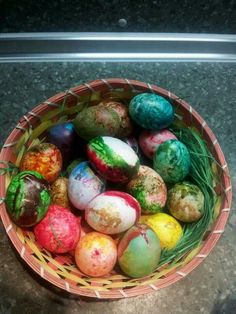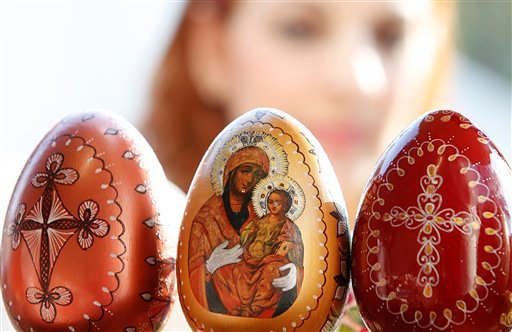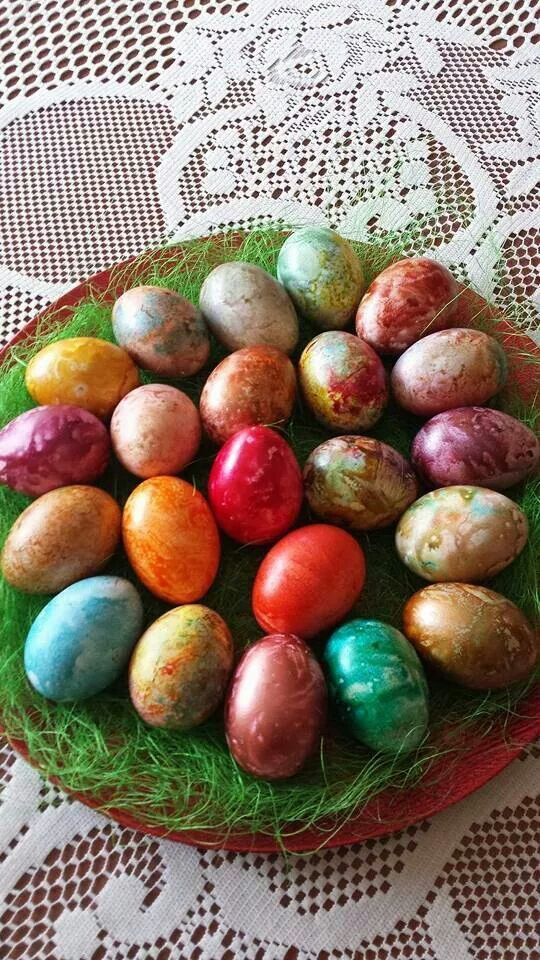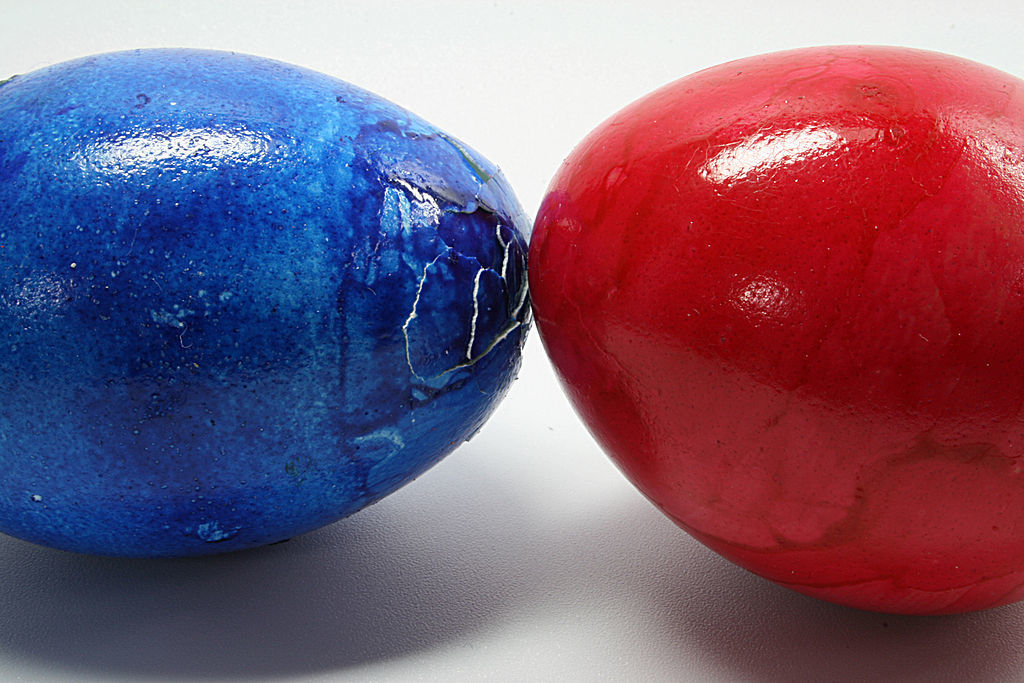A reader writes about...
Easter, Bulgarian Style
by Angela Almond
As the saying goes, “Don’t put all your eggs in one basket.” Unless, of course, they look like these!

intricate eggs
|
In Bulgaria, Easter is one of the most important festivals of the year. It is also the holiest. The Orthodox Christian faith is practised by the majority of its seven million residents. Bulgaria still follows the Julian calendar, unlike other western countries, which follow the Gregorian calendar. But Easter coincides in both calendars at April 16, 2017.
There are many traditions at Easter time; here are just a few of them:
Painted Eggs
It is estimated that at least 100 million eggs will be hard-boiled every Easter. The preparation usually begins on Maundy Thursday, in anticipation of Easter Day. The eggs are then dyed in a variety of different colours and decorated with intricate patterns and designs.
Sometimes, wax is used to create ornate patterns or the sign of the cross; after which, the eggs are dried out in the sun. To complete the task, eggs are then wiped with oil or varnished and then placed in an attractive basket. Sometimes, shredded coloured paper is placed in the basket to resemble straw or grass, to give a more authentic appearance. Red eggs have a greater significance, as they represent the blood of Christ.

iconic eggs
|
Whatever your skills. this is definitely a time for people to show off their artistic talents; or on the other hand, let the kids have a go!
Services
Church services are held late at night, usually one hour before midnight. Gifts are brought and laid on a special table; usually red painted eggs and bread. The priest will bless the gifts and then say, ‘Christos Voskrese’ (Christ is risen) three times. The congregation will then reply, ‘Vo istina voskrese’ (He is risen indeed).
Mary Magdalene
It is believed that Mary Magdalene gave Tiberius an egg when visiting his palace, unlike other people who bestowed expensive gifts to the Emperor. As she held out the egg to him, Mary Magdalene said, ‘Christ has risen from the dead.’ Tiberius is thought to have doubted her proclamation, saying, ‘How can anyone rise from the dead?’ As he said these words, the white egg turned a bright red. Her words thus became the Easter greeting.

more eggs
|
Name Days
Many Bulgarians have a special day, relating to their own name. Some people are named after flowers, or even a plant. For example: Roza, Violetta or Lillia. These will be celebrated on Palm Sunday. However, other names, such as: Velina, Velichka or Velika, will be celebrated on Easter Sunday. These names relate to Velikden: meaning the resurrection of Christ.
Celebrations
On Easter Sunday, families and friends will gather to share a feast of treats, usually lamb will be centre stage on the table. A special bread called kozunak is prepared that symbolizes the body of Christ. This bread is quite sweet and can contain fruit, nuts and alcohol, such as rum.
Egg-bashing
On Easter Sunday, families take part in a tradition called egg-bashing or egg-knocking; this is seen as a competition. As this is a family affair, all members, young and old, take turns to hold up their egg, so someone else can knock against it. Whoever’s egg comes off best without being cracked or the least damaged is considered to hold good luck for the coming year. As red eggs are considered to be the most important, at least one red egg will be set aside and kept until the following year. The egg is then opened to see if it is still fresh. A fresh egg will indicate prosperity and happiness in the household.

Angela’s egg and a winner
|
Several years ago, I spent two years living in a Bulgarian village. I consider myself fortunate enough to have witnessed this tradition first hand. My neighbours told me it was only a bit of fun; however, it was clear to me that there was definitely some healthy competition going on. I joined in the egg-bashing and, although it pains me to say, my eggs definitely came off worse, much to the amusement of my Bulgarian neighbours!
This tradition is very different to ours, eating mass-produced chocolate eggs in a variety of flavours, all in neat, eye-catching boxes. Although, this may suit our lifestyle, as we’re dashing up and down the supermarket aisles, I think you’ll agree, it’s not quite as much fun as the Bulgarian custom!
Wishing you all a very Happy Easter, Chestita Velikden!
© Copyright 2017 by Angela Almond

